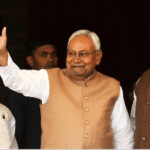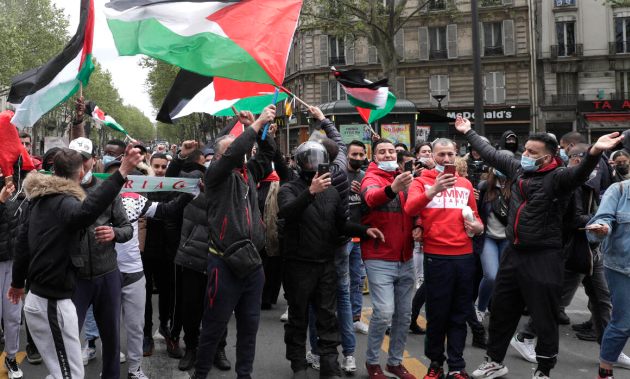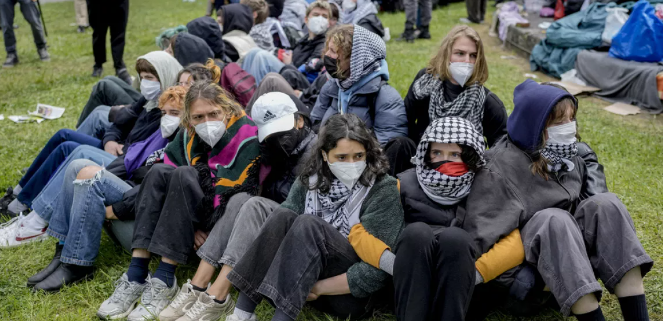In the early hours of Tuesday, Dutch police intervened to dismantle a pro-Palestinian demonstration camp at the University of Amsterdam, where activists had occupied a small island since Monday. The protesters had been advocating for a severance of academic ties with Israel in response to the conflict in Gaza.
Approximately 125 activists were arrested as authorities dispersed the demonstration, marking a significant moment in the ongoing protests that have reverberated across European campuses following similar actions in the United States.
The scene at the University of Amsterdam underscores the heightened tensions surrounding the Israel-Palestine conflict and its global ramifications. The clash between demonstrators and authorities reflects the depth of emotion and the sense of urgency felt by many regarding the situation in Gaza.
As campus protests continue to gain momentum, they serve as a reminder of the interconnectedness of global issues and the role that academic institutions and their communities can play in advocating for change.
Recent days have witnessed a surge of student activism across Europe, with protests and encampments springing up in Finland, Denmark, Germany, Italy, Spain, Britain, and even in France. These demonstrations reflect the widespread concern and solidarity regarding the Israel-Palestine conflict, echoing similar actions seen in the United States.
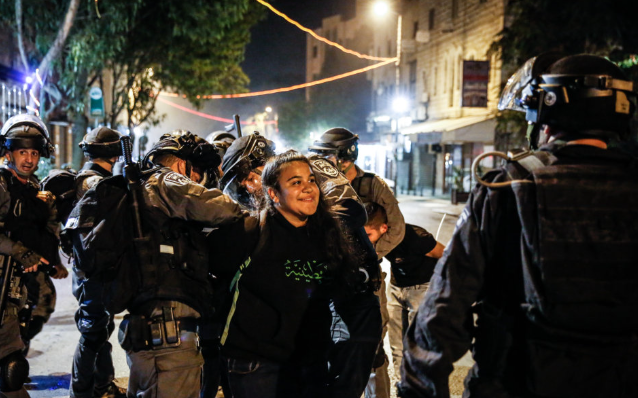
However, the scene at the University of Amsterdam took a dramatic turn when Dutch police intervened to disperse a pro-Palestinian demonstration camp. The police justified their action on the social media platform X, stating that it was “necessary to restore order” after protests escalated into violence.
Videos aired by national broadcaster NOS captured the intensity of the situation, showing police employing a mechanical digger to dismantle barricades erected by protesters. Officers equipped with batons and shields moved in, some engaging in physical altercations with demonstrators and tearing down tents in the process. According to reports, protesters had constructed barricades using wooden pallets and bicycles.
Despite the absence of immediate reports of injuries, the confrontation highlights the volatile nature of the discourse surrounding the Israel-Palestine conflict. It also underscores the challenges faced by authorities in balancing the right to peaceful protest with the maintenance of public order.
The images from Amsterdam serve as a stark reminder of the passionate voices and the diverse tactics employed by those advocating for change. As the conflict continues to unfold, the impact of these demonstrations reverberates not only on university campuses but also across the broader societal landscape of Europe.
It’s heartening to see how students are engaging with such important issues on campuses across Europe. At the University of Amsterdam, after the protest was cleared on Tuesday, the police took measures to secure the area with metal fences. Meanwhile, students gathered along the nearby canal, reflecting on the events that had transpired. 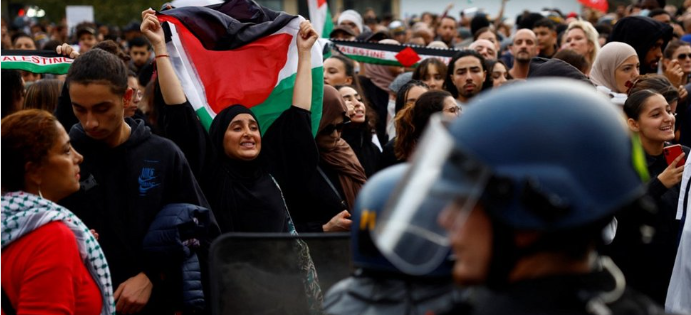
The university emphasized the importance of dialogue in addressing the conflict, acknowledging the significant impact it has on individuals within their community. They expressed solidarity with those affected by the war between Israel and Hamas while reaffirming the value of constructive discourse within the academic setting.
In Berlin, the scene was similarly charged as hundreds of pro-Palestinian protesters took over a courtyard at the Free University. Erecting tents and forming a human chain around the encampment, they made their voices heard in response to the school’s consideration of evacuating them.
These actions underscore the passion and determination of students to stand in solidarity with Palestine and demand accountability amidst the ongoing conflict. They demonstrate the power of collective action and the crucial role that educational institutions play as spaces for meaningful dialogue and advocacy.



